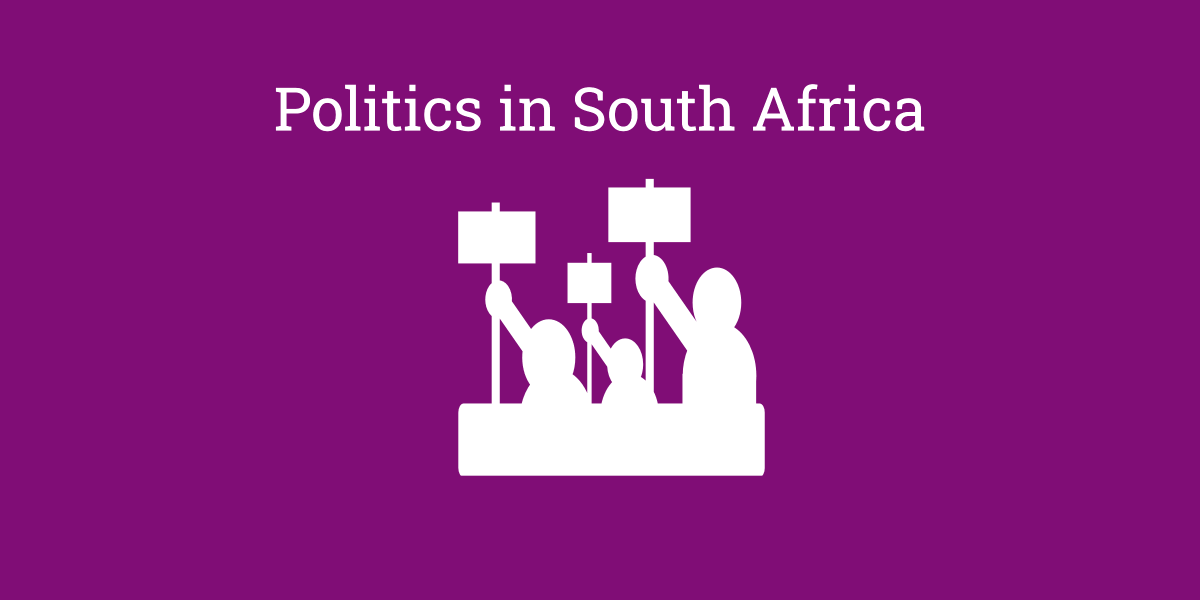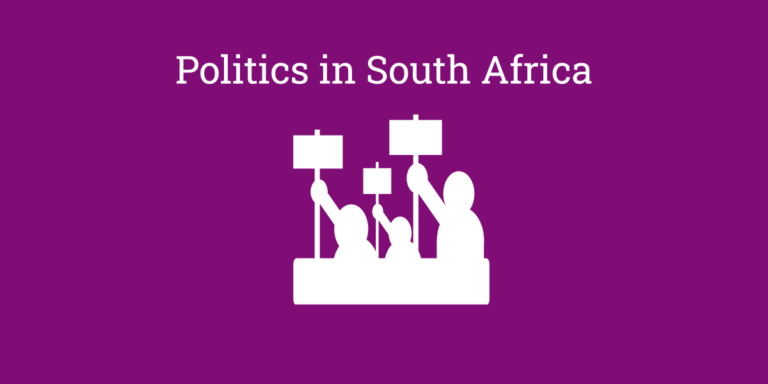Sixteen Rand is not much. It’s what a single shot of espresso at an upmarket hotel in Cape Town might cost. However, poverty estimates reveal that over 20% of the population attempt to meet not only their food needs, but every other need with less than R16.00 a day.
At an upmarket hotel, a Minister could live, what is called in popular parlance, a “caviar lifestyle.” Consider this: for the estimated half a million Rand one Minister actually did spend at a hotel, one person could receive the state’s old age pension for over 40 years.
The Minister may well be negotiating with cellular phone companies that are colluding on prices, increasing the cost of cellular usage and putting a lag, not only on South Africans using mobile technology for banking, but on economic growth itself. The CEO of the large cellular phone company would have benefitted from the company’s empowerment deal, and works long hours to make the company successful. He begrudgingly accepts that some of his BEE partners can be nothing more than “politically connected.”
The Minister and the CEO would, no doubt, find common cause in the huge amounts of finance that leave South African shores each year. Perhaps, in their luxurious enclaves, they are a little insulated from the deep economic divisions of our society. But those enclaves offer a short respite, because evident everywhere, are deep divisions showing how different South Africans spend R16.00.
Sixteen Rand is hardly enough money to feed a household and search for employment. But these households are, in technical jargon, below the “upper bound” poverty line. In simple language, they are not yet the “poorest of the poor,” which politicians speak so eloquently of. These humble beginnings are what we celebrate in the “rags to riches stories.”
Perhaps these are the very people who should provide the social capital to deepen democracy as advocated by the Dinokeng Scenarios. But, then again perhaps these households are the very ones that would – in the most romantic of revolutionary senses – constitute the start of an urban social movement that would in the flowery prose of academia “constitute a tactical and redistributive opening.”
With such hefty burdens on the poor, the daily slog to find something to eat sounds positively easy.
Why is it – and I include myself in this – that the better off place such a burden on the poor?
Conceivably, despite all that distinguishes the ‘social movements’ argument from the ‘rags to riches’ story, they are just variants of that other cliché – pulling yourself up by your bootstraps. What if these very people do not have boots or had their boots stolen from them or were denied the ability to own cattle whose hide could make boots?
In such a context, it is not surprising that the call for nationalisation finds fertile ground, and raises the ire of others. The argument has a solid foundation and shaky policy logic. Its solidity is that without strategies to either transfer wealth or build new wealth, South Africa will remain unequal, and with it, faces a fractured future. The policies, however, become shaky as their proposals neither socialise benefits nor provide assets for future generations. Evidently inequality breeds an economic populism, as it entrenches itself.
Does the Rising Tide Lift All Boats?
Increasingly the upper classes in our society reflect the “rainbow nation.” They have become more non-racial, or so it appears. The statistics however tell us that economic wealth is still largely determined by race.
What remains remarkable is that despite the different starting points determined by race, the policy prescriptions are more or less the same. Hard work, risk taking and entrepreneurial endeavour will spur the economy on to a new path. A rising tide raises all boats, as the development studies’ textbooks suggest.
But entrepreneurial endeavour faces significant challenges in South Africa because our “free market” lacks competition. The market replicates the income divide, because South Africa’s economy is characterised by high levels of economic concentration and collusion. The challenges for big business are simply “high labour costs” and a “regulated labour market.” By freeing the labour market they argue that jobs will be created. The implicit argument is that hard work is rewarded without reference to wider social conditions.
There is however a profound disconnect between effort and reward in our society. Most easily, it is seen in lucrative black economic empowerment (BEE) deals that transfer share ownership without creating jobs or new investments. During the Mbeki era, the Elephant Consortium’s purchase of shares in Telkom was a good example of political power reinforcing a business practice that deepened inequality. And, in the Zuma era, through a complicated set of processes, a group of politically connected individuals first received mining rights, and then, a large BEE deal during the dispute between Kumba Iron Ore and Accelor Mittal.
Here again, huge income transfers were undertaken without jobs being created. The real challenge is the fact that there are many entrepreneurs without political connections who receive little or no support from the state. Thus, the “rents” are being distributed in ways that reproduce inequality.
The conditions that dominant firms find themselves in create another barrier for hard working “start-ups.” Price collusion in the South African economy has traditionally been a common practice among larger players. Such collusion is however rendered easier with the “oligopolistic nature of business” in South Africa. That basically means that a few big companies have effective control over entire industries and are able to not only set prices but also capture markets. As a consequence, start-ups have a very difficult time getting new products onto the market, as well as creating value and jobs. Big companies, with very little effort, can maintain profit levels and stifle competition.
Yet, the very proponents of economic growth do not take the logical step by proposing an “economic de-concentration” programme.
Without looking at value chains and state subsidies and support to big business, we can never have a full picture of what strategies are needed to create “market supporting institutions.”
Despite economic growth, capitalism reproduces inequality in South Africa, because the opportunities for participating are limited not just by race, but by the structure of the market.
Linking the Political with the Practical
A useful starting point for developing proposals is understanding just how unequal we are as a society.
In several international comparisons, South Africa is either the most unequal society, or within a group of seven countries that could be regarded as “super unequal.” Yet, as shocking as this fact is, it pales in comparison to the uncontested truth that we have, since democracy, not become a more equal society.
Official government statistics paint a steady picture of high inequality. These statistics worry government officials, as they wonder what to do to reduce inequality. This worrying can only be deepened with independent studies showing that we have become more unequal since democracy.
To add grist to the mill, the situation is far more complex than either the proponents of nationalisation or those arguing for the inevitability of inequality suggest. For instance, under a nationalised mining sector, would these companies sell their products at socialised prices, or at market-determined prices? In the other instance, would propelling economic growth without regard for income distribution be sustainable, under heightened social unrest? Clearly, the proposals are deliberately cast in strident ideological tones, rather than for practical implementation.
Curiously, these extreme positions make the strangest of bedfellows in various BEE deals. The contradictions are ubiquitous; the very captains of industry that make the loudest calls for economic growth and labour law relaxation are the ones leading the process of BEE that has put a brake on economic growth.
The search for practical measures to improve income distribution in our society is at a similar crisis point. At the level of political strategy, two broad coalitions are proposed.
First, the conventional prescription is a social compact involving big business, organised labour and government. This approach seeks to reduce distributional conflicts over resources through agreements and concessions amongst parties. Government officials already speak of a combination of increased fiscal spending and supporting export currency interventions on the one hand. With, on the other hand, wage moderation and increased support to firms to make them viable. This ‘national deal’ is underpinned by recent policy signals from the Presidency and the Treasury that a programme to reach an economic growth target of 7% will mark this term of government.
Second, and alternatively, there is the view that sees the organised working class making strong and sustainable linkages with emerging social movements, and a range of advocacy and activist based organisations. This entails shifting power relations in society through political mobilisation and activism. A strong coalition of the weak and excluded working in the framework of democracy would yield wider distributional gains for the poor, is the promise of this political coalition.
Importantly, the coalition would not seek to become a political party but rather shift power relations in society. The motivation is that this would result in a more ambitious set of redistributive arrangements.
Missing from the equation are the actual policies that are likely to reduce inequality. It is not that they do not exist, but rather that they need to be robustly assessed. How much would a currency intervention cost? What are the human resource requirements on government to start up a quarter of a million jobs? How would a low entry-level position in the public service function? Can we both meet 7% economic growth as well as lower employment to 13%?
It is by connecting the practical with the political that an ambitious strategy to make our society more equal would emerge. It’s time to move the discussion on inequality. It could start with making sense of how the “haves” and “have-nots” spend R 16.00.
This article was first published under creative commons license on South African Civil Society Information Service website.

